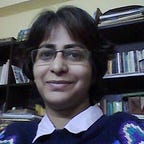Dewana Madina
This is a medieval Bengali Ballad composed by a rural bard Mansoor Baiyati. How religious it is or how compliant it is with Islamic commandments? We do not know - Bengalis do not even bother. Islam in Bengal never followed hardliner tradition – poems, songs and music are part of Islamic life like any other communities here. Muslim women in rural Bengal are not aware of the sanctity of Burqa or hizab. Course of Islamic tradition as part of greater Bengali community was a free flowing river with tributaries. Islam followers from different geographies arrived in Bengal. Here Arabic, Persian and Mongolian culture intermingled to the extent that all became indistinguishable in commoner’s eyes. Later Sufi tradition became popular here taking a different version from the original. The Muslim ruler Hussein Shah patronized Chaitanyadev, the founder of the Bengali Vaishnav cult that adopted music as medium of worship. Also many Islam followers became Vishnu worshipper. We see Islam-follower bards composing Gorakshavijay or Manasamangal songs, and Hindu women in rural Bengal worshipping Satyapir. Baul, Fakir and Darbesh communities denied religious divide among people. When we look at the literary compositions by Bengali Islam followers, not all of those were about the prophet. In the one hand, they composed ballad like Nabibangsa on the Prophet’s family lineage, on the other, Muslim grandfathers and grandmothers continued telling children orally transmitted stories on Sultans and Djinns, Abdulla and Marjina.
Dewana Madina belongs to third category of Islamic literature which is based of contemporary social stories. This is composed in colloquial Bengali; understandable that the poet was not formally literate one who could use Farsi or Arabic scholarly way. But why does one need scholarly language to express tender emotions of human heart, tell the story of a sad event that happened in the Dewan family of Baniachong city in Sylhet in 17th\18th century? Being a rural bard, the composer added a pure fable with the historical incident to attract listeners to an already popular story. And that is reason we can define it in the category of legends – a very special Islamic legend from Bengal.
My translation of this story is available in a Kindle book, Asateer https://www.amazon.in/dp/B08R82MR6J/ref=cm_sw_r_wa_apa_4dj-FbC39VZ9B
